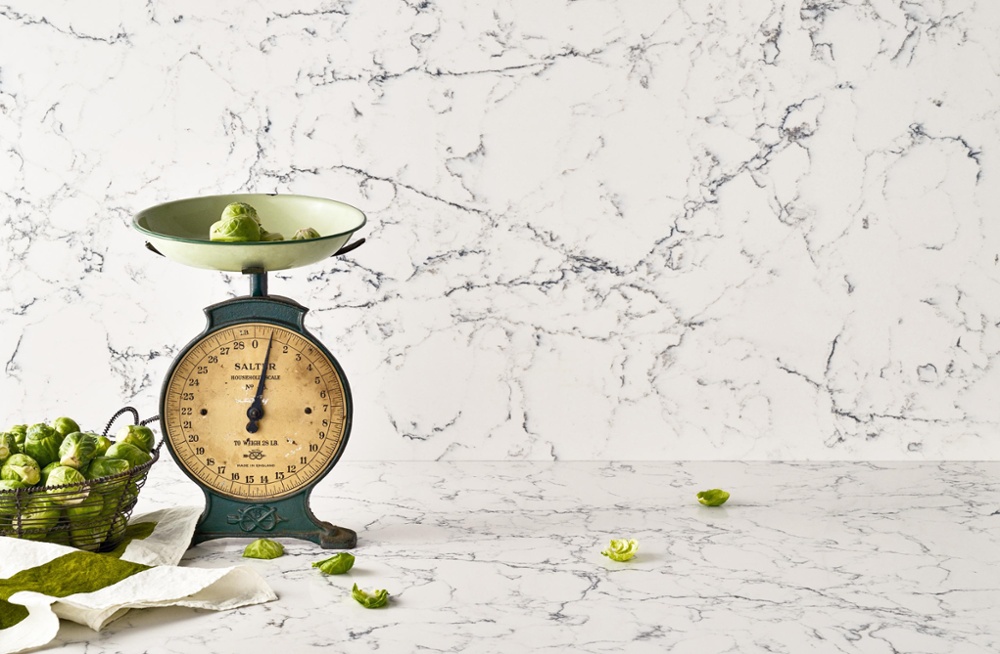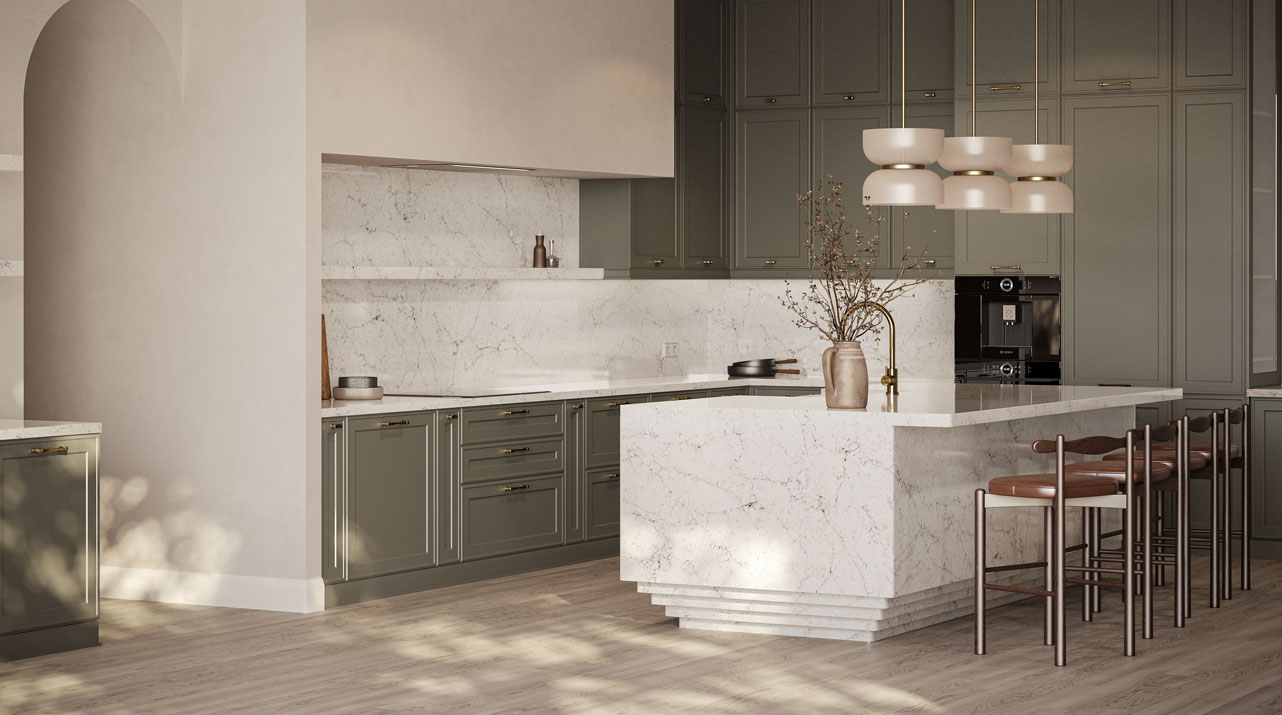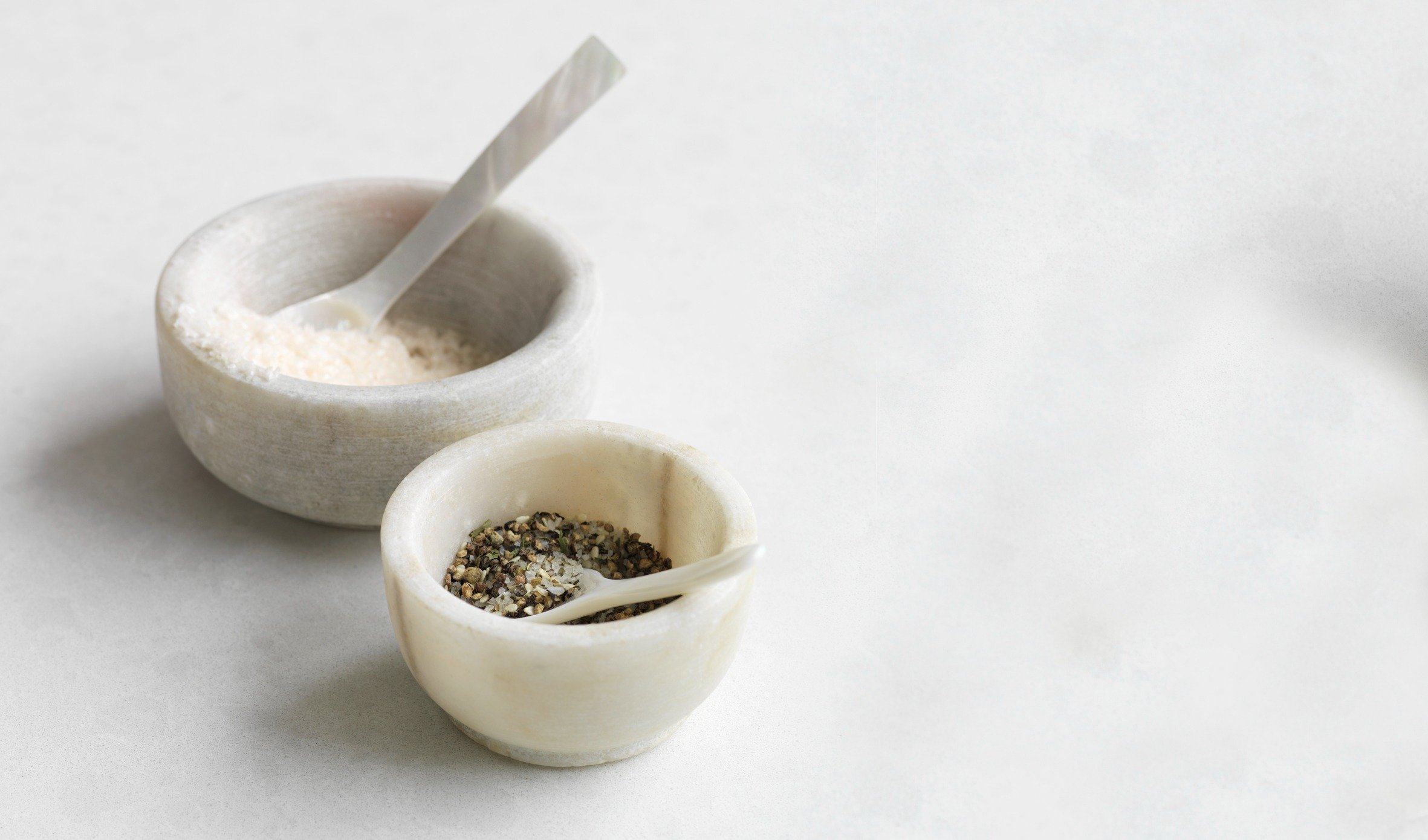
Your kitchen worktop is a fundamental element to your kitchen. Not only does it take up a considerably large amount of visual space, but it also bears the brunt of daily life – prepping, chopping, cooking – so your worktop ideally needs to be able to resist heat, scratches and stains whilst fitting your overall aesthetic.
How to choose the right kitchen worktop…
With so many options available to choose from for your kitchen worktop material, it’s worth considering all of the different factors of each, as well as how you plan on using your kitchen. How often do you whip up food from scratch? Do you roll out dough or meal prep on a regular basis, with lots of clean up required in-between? Or are you more interested in entertaining in your kitchen, with less focus on cooking and cleaning?
There’s also budget to consider – most materials can fit varying budgets, but ideally, you’ll want the best quality that you can afford to ensure it stands the test of time. Because it’s such a focal point of your kitchen, you need to make sure you budget accordingly and allocate the right amount so that you can choose the exact material you want. Generally speaking, worktops in modern kitchens are approximately 20-25% of the cost of the kitchen.
From a visual perspective, you may already have an idea of what you want your worktop to look like – whether there’s a particular colour or texture you’d like to incorporate. Many worktop materials can fit different kitchen styles, so it may be the practicalities and performance capabilities that form the basis for your final choice.
To help you make an informed decision on your kitchen worktop, we’ve compiled the pros and cons of each of the main materials…
Quartz Kitchen Worktops
What is quartz?
Quartz is an engineered stone, usually formed with around 93% quartz aggregate, which is one of nature’s strongest minerals, and 7% other polymers and resins that can transform the finish and colour. For many, it has become a primary contender for the likes of marble and granite, providing a striking visual alongside low maintenance and strong durability.
Pros
- Strong durability
- Anti-bacterial
- Low maintenance
- Wide variety of designs from brand names
Cons
- More exclusive designs can come at a higher price point
- Heavy
Granite Kitchen Worktops
What is granite?
Granite is a natural stone, formed through cooling pressurised magma over millions of years. It is cut in its natural state and polished to form a solid worktop. There is a limited range of colours due to its natural origins and each piece is different, which can mean you need to plan your kitchen around a specific slab.
Pros
- Heat resistant
- Fair durability
- Easy to clean
Cons
- Higher price point
- Needs sealing
- Heavy
Wood Kitchen Worktops
What is a wood worktop made from?
There are various types of wood that can be used to form a worktop, including ash, beech, mahogany and bamboo. Each brings its own unique look and feel, with maple, oak and beech the most traditional, whilst bamboo or iroko can add a unique twist.
Pros
- Lower price point than stone
- Variety of wood grains
Cons
- Easily stained
- Easily damaged
- Not heat resistant
- Requires regular maintenance
Laminate Kitchen Worktops
What is laminate?
Laminate is made of a chipboard core with a stiff, coated plastic laminate covering, which can take on a variety of different colours and styles, including some that mimic granite or wood.
Pros
- Low price point
- Variety of colours and styles
- Easy to clean
- Low maintenance
Cons
- Easily scratched
- Not heat resistant
- Prone to peeling
- Can look cheap
Marble Kitchen Worktops
What is marble?
Marble is a natural stone formed from hard, crystallised limestone. It is a porous material that stays cool to the touch. There are two main types of finishes – honed for a soft matte texture and polished for a glossy, vibrant surface.
Pros
- Heat resistant
- Luxury appeal
Cons
- High maintenance
- Easily damaged
- Prone to staining
- Limited colour range
Steel Kitchen Worktops
What are steel kitchen worktops made from?
Steel is extremely strong, waterproof, antibacterial and heat resistant – meaning it’s usually found in commercial environments. It can look and feel a little bit cold and clinical in a domestic kitchen, however, it can work in an industrial theme kitchen.
Pros
- Antibacterial
- East to clean
- Heat resistant
Cons
- Easily scratched
- Clinical aesthetic
Still not sure? Take a look at our Worktop Material Cheat Sheet, giving you a top level overview of all the key factors so that you can see at a glance which material performs best...
Header Image Source: Caesarstone




